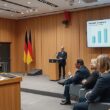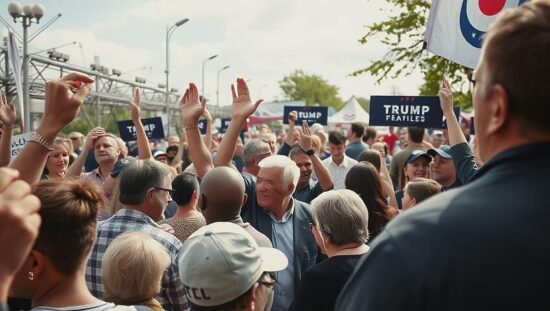Argentina’s ruling party, La Libertad Avanza, led by President Javier Milei, secured a resounding victory in Sunday’s parliamentary elections, marking a significant endorsement of his controversial economic policies and potentially solidifying his power base. The results, exceeding pre-election polls that had predicted a narrow lead for the Peronist alliance, underscore a growing public appetite for radical change amidst decades of economic instability.
La Libertad Avanza garnered approximately 41% of the national vote, relegating the historically dominant Peronist coalition to second place with 32%. Crucially, the victory extended to the key province of Buenos Aires, a traditional stronghold for Peronist support and a frequent site of protests against Milei’s administration – a result widely considered a major upset.
President Milei characterized the election outcome as a watershed moment, asserting that the government can now “intensify” its reform agenda over the next two years to establish consistent growth and usher in a definitive recovery for Argentina. This victory effectively provides a legislative shield for his agenda, which includes sweeping austerity measures and a deconstruction of the state apparatus.
Milei’s approach, often described as a “shock therapy” rooted in radical libertarian principles, has already triggered significant shifts within the Argentine economy. Actions taken include the closure of numerous ministries, substantial layoffs of state employees, the elimination of subsidies and substantial reductions in social welfare programs. While early indicators suggest a slowdown in inflation and a demonstrable strengthening of the state budget, the initial impact on poverty rates was a marked increase, although official statistics now report a decline – a figure met with scrutiny from independent analysts.
Political commentators are raising concerns about the long-term social implications of Milei’s policies and the potential for increased social unrest, even with this demonstrated electoral support. Critics argue that the cuts to social programs disproportionately affect vulnerable populations and risk exacerbating existing inequalities. Furthermore, the consolidation of power in the hands of a president pushing such a radical agenda raises questions about democratic checks and balances and the potential for authoritarian tendencies. The parliamentary elections, while a clear mandate for change, present a complex challenge: can Milei’s policies deliver sustainable prosperity while mitigating the inevitable social costs and addressing growing concerns about the erosion of established institutions?





